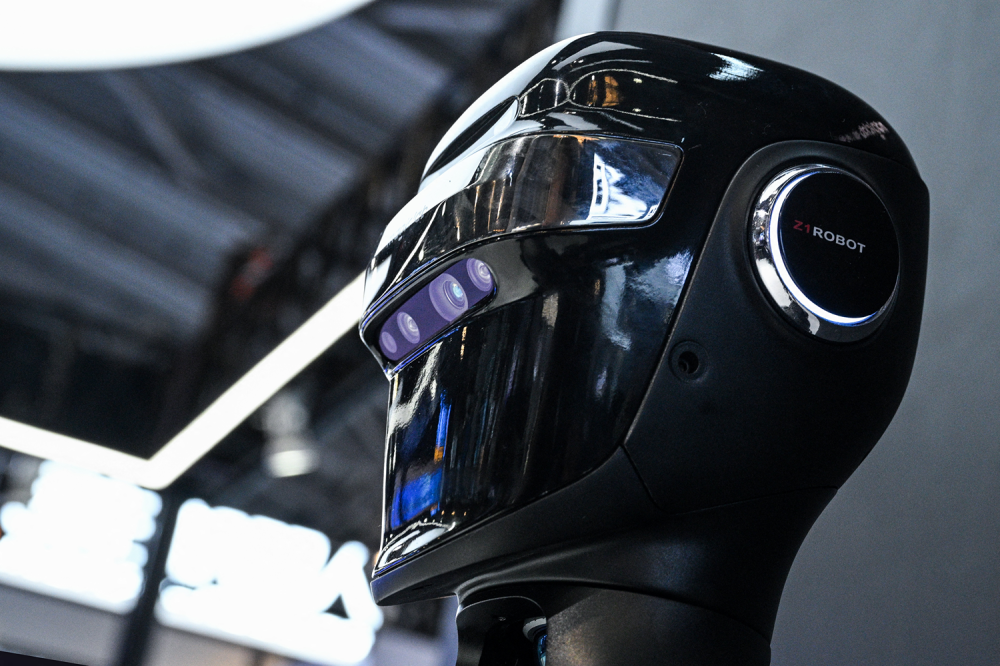On Wednesday, the Supreme Court will hear new arguments in Louisiana v. Callais, which holds significant implications for the future of the Voting Rights Act (VRA). The justices will decide whether Louisiana’s inclusion of another majority-Black congressional district “violates the Fourteenth or Fifteenth Amendments to the US Constitution.”
The case arose out of a 2022 federal district court ruling that Louisiana needed to redraw its congressional map to more fairly reflect its population, which is over 30% Black. The state did so, but then a group of self-described “non African American voters” challenged the court-ordered revision, claiming it required “racial gerrymandering.” The Supreme Court will now take up this argument.
Louisiana has chosen not to defend the creation of a second majority-minority congressional district, instead declaring that “race-based redistricting is fundamentally contrary to our Constitution.” The state alleges that enforcement of Section 2 of the Voting Rights Act, which offered Black Americans voting access and protections in 1965, actually constitutes “government-mandated racial discrimination.”
Meanwhile, the appellants insist that the VRA remains necessary to protect two fundamental rights: “the right to vote and the right to be free from racial discrimination.”
The question before the Supreme Court is both legal and historical. In effect, Louisiana is asking the justices to forget the long, contested struggle of Black Americans for the franchise and to construct a national memory in which Black Americans seeking representation becomes a form of reverse discrimination. Louisiana v. Callais will not simply be a judgment on the VRA, the “crown jewel” of civil rights legislation, but part of an ongoing effort to reimagine American history to fit a current political agenda. The very history of the VRA, however, demonstrates that such a rewriting of the past could have a catastrophic impact that weakens American democracy.
In the decades after the Civil War, a conscious political and intellectual campaign sought to reinterpret the conflict, specifically distorting what started it: slavery. This push left many white Americans remembering the war not as a violent struggle but, in the words of historian David Blight, as a “glorious fated event in which slavery and racial division were…banished from the national story.” For people to adhere to this interpretation, however, they had to ignore what unfolded in the wake of the war and the realities of life for Black Americans.
With the war’s end and subsequent passage of the 13th, 14th, and 15th Amendments, Black Americans gained constitutionally protected freedom, citizenship, and political rights. They ran for and won the highest public offices in the nation. Twenty-two days after the 15th Amendment was ratified in 1870, Hiram Revels became the first Black American to serve in Congress. “All men are created equal, says the great Declaration,” the abolitionist Senator Charles Sumner said as Revels took his seat. “Today we make the Declaration a reality.”
Read More: The Story of the Voting Rights Act Is a Lesson in Overcoming Setbacks
But by 1877, these rights quickly faded away. After President Rutherford B. Hayes withdrew federal troops from the South, white supremacists reasserted their political control, curtailing Black freedom in ways both legal and extralegal. By 1896, the Supreme Court even made this racial discrimination compatible with the 14th Amendment in Plessy v. Ferguson, which upheld state segregation laws as constitutional under the farcical logic of “separate but equal.”
In the decades after, a period known as the “nadir of race relations,” Southern legal schemes turned the constitutional rights and freedoms of Black Americans into a mockery. Sharecropping and the convict lease system essentially re-enslaved many by trapping them in cycles of debt and forced labor; segregation laws relegated Blacks to separate public facilities and schools; poll taxes, literacy tests, and other barriers eroded access to the ballot. All of this was enforced through violence. By the early 20th century, the constitutional freedoms guaranteed to Black people in Reconstruction were practically nonexistent.
But white Americans ignored this reality in the name of national reconciliation and rebirth. It left Black Americans facing insurmountable legal hurdles and racist terror, and many simply tried to survive, resigned to their second-class citizenship. While some continued to press for inclusion in American democracy and life, like Mississippian Charles Evers, who demanded a ballot in 1946, most could or did not. “Many withdrew from politics altogether,” historian Leon Litwack argued, “persuaded that it offered no solution to the daily problems of economic survival.”
Over time, not only were the political and social rights enjoyed during Reconstruction stolen, they were largely forgotten.
The historical whitewashing of the Civil War and its aftermath meant the great-grandchildren of Hiram Revels did not know they had ever had the right to vote, much less that one of their own had not so long ago been a U.S. senator. So complete was the erasure of the past that Civil Rights activist Fannie Lou Hamer would later explain, “I had never heard, until 1962, that black people could register and vote.” She only learned this when the Student Non-Violent Coordinating Committee (SNCC) came to rural Mississippi.
This brings us back to the 15th Amendment and the VRA. When Black Alabamians marched across the Edmund Pettus bridge in 1965, they were not asking for the right to vote. They had received it 95 years earlier. Instead, they were asking for an end to discriminatory state practices and for federal protection from the violence that had kept them from accessing this bedrock right.
For the Supreme Court to now conclude that Section 2 of the Voting Rights Act is actually racially discriminatory would require a wholesale forgetting of the history between 1876 and 1965 that necessitated the seminal law. That historical revisionism has already begun, driven both by the Court’s own decisions and the actions of the Trump Administration.
In 2006, Republican President George W. Bush signed a reauthorization of the Voting Rights Act. He acknowledged that the original law broke the “segregationist lock on the ballot box” and “marked the first appearance of African Americans on the voting rolls since Reconstruction.” Its protections enabled many Black Americans to pull “the voting lever for the first time in their lives.”
Yet, seven years later, in Shelby v. Holder, one of Bush’s appointees to the Supreme Court, Chief Justice John G. Roberts Jr. led a 5-4 majority in ruling that Section 4 of the VRA was unconstitutional because it imposed undue, outdated burdens on Southern states. Roberts declared that “things have changed dramatically” because data indicated “that African-American voter turnout has come to exceed white voter turnout in five of the six States originally covered…with a gap in the sixth State of less than one half of one percent.”
But this argument ignored what Bush had so readily acknowledged: only the protections of the VRA made this possible.
Read More: The True Story of Appomattox Exposes the Dangers of Letting Myths Replace History
The campaign to erase from popular memory the discriminatory laws that made it impossible for Black Americans to exercise their rights has accelerated since Shelby. Thanks to the Trump Administration’s effort to “[restore] truth in American history,” K-12 teachers are expected to “instill patriotic admiration” for the country and avoid any topics deemed “divisive” or “un-American.” If schools do not comply, they could lose resources. Institutions of higher education face similar threats, as do sites of public history. The National Park Service, for instance, has been instructed to change memorials to remove evidence of slavery’s violence.
The risk is that the U.S. repeats the history of the early 20th century in which Black Americans lost access to and faith in the political process. There are signs that this tragic forgetting has already begun.
A combination of new obstacles to ballot access (made legal by the Shelby decision), and a dearth of knowledge about the country’s past have contributed to apathy that is reshaping the political environment. The Black-white turnout gap has widened. Additionally, among Black voters, a generation gap has emerged: the Public Religion Research Institute (PRRI) recently found that 58% of voters aged 30-49 and 61% of voters aged 18-29 sat out the last election. Meanwhile, demonstrating how important an accurate understanding of history is, elder Black voters continue to cast votes in high numbers, citing the historical lessons that motivate their participation.
Now, however, the state of Louisiana is asking the Supreme Court to formalize the erasure of the past.
The struggle for America to be a government by and for its multiracial citizens has never been linear. Casting moments of freedom, like Reconstruction or the Civil Rights Movement, as products of inevitable unity rather than sustained struggle can foster complacency about democracy. Histories can be revised, rights revoked.
Ansley Quiros is an associate professor of history at the University of North Alabama and author of God With Us: Lived Theology and the Freedom Struggle in Americus, 1942-1976. She is currently writing a biography of Charles and Shirley Sherrod. Allie R. Lopez is a postdoctoral fellow at Baylor University, working on a book on the freedom struggle in rural Alabama.
Made by History takes readers beyond the headlines with articles written and edited by professional historians. Learn more about Made by History at TIME here. Opinions expressed do not necessarily reflect the views of TIME editors.
The post The Perils of the Supreme Court Forgetting the Past appeared first on TIME.




